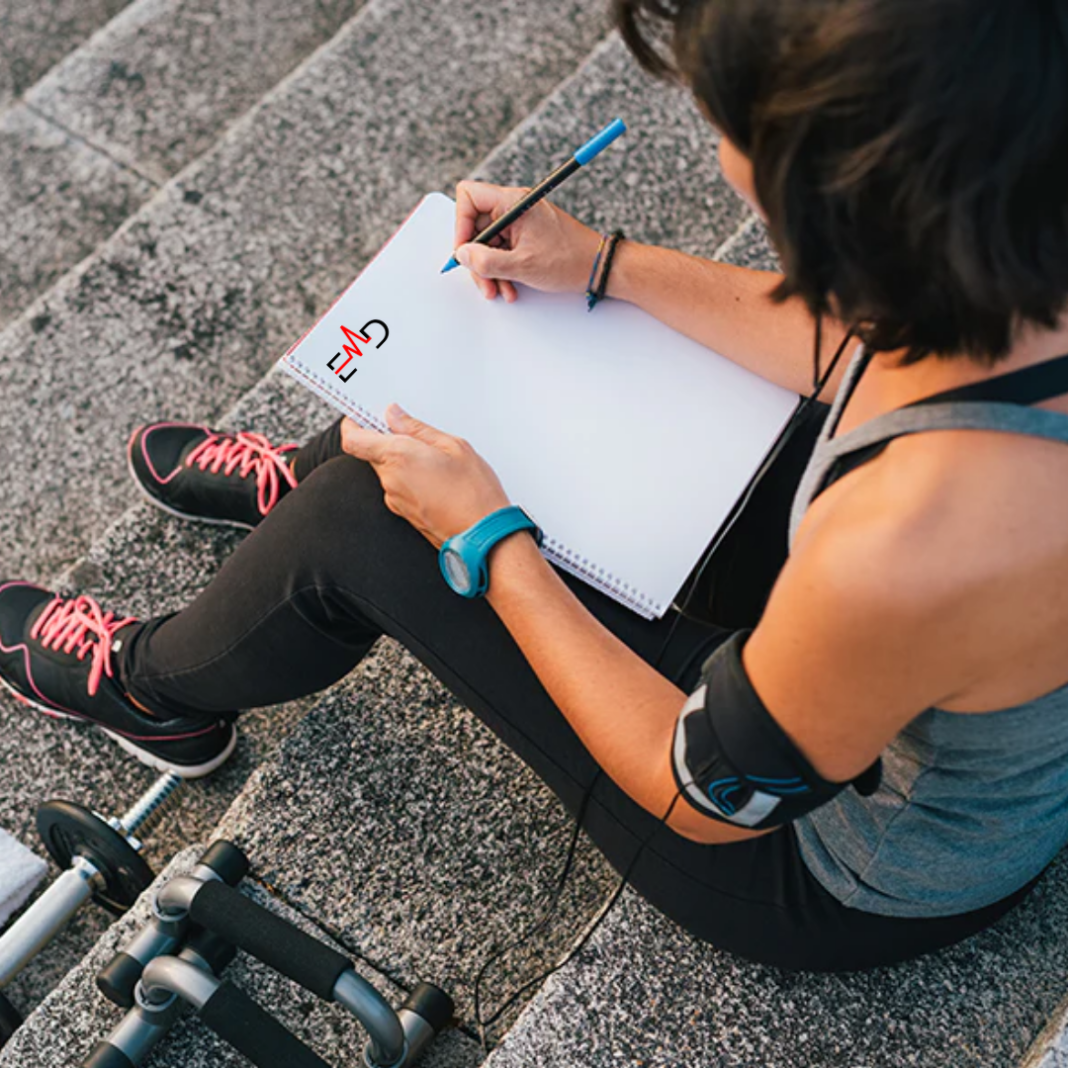Exercise Daily – We all know the feeling of waking up groggy and irritable after a restless night. A good night’s sleep is crucial for our health and well-being, yet many of us struggle to get the rest we need. If you’re looking for ways to sleep better at night naturally, you’ve come to the right place. This guide will provide effective tips and natural remedies to help you achieve better sleep and wake up refreshed.
Sleep is crucial to overall health and well-being, particularly for athletes who rely on physical and mental performance. A good night’s sleep can enhance recovery, improve cognitive function, and boost athletic performance. This detailed note will explore how better sleep helps athletes and provide practical tips to improve sleep quality.
The Importance of Better Sleep
What is Better Sleep?
Better sleep means getting enough quality sleep to feel rested and alert during the day. It involves both the quantity and quality of sleep, ensuring you go through all the necessary sleep stages.
Health Benefits of Better Sleep
Quality sleep has numerous health benefits, including improved memory, better mood, stronger immune function, and reduced risk of chronic diseases. It can also enhance cognitive performance and overall quality of life.

The Importance of Sleep for Athletes
Physical Recovery
1. Muscle Repair and Growth
During deep sleep, the body releases growth hormones aiding muscle repair and growth. These hormones are essential for athletes who engage in strenuous physical activities and need their muscles to recover quickly.
2. Glycogen Restoration
Sleep helps replenish glycogen levels in the muscles, which are depleted during exercise. Adequate glycogen levels are vital for sustained energy during workouts and competitions.
3. Injury Prevention
Adequate sleep reduces the risk of injuries by enhancing coordination, reaction times, and overall physical stability. Fatigue from lack of sleep can lead to poor judgment and an increased risk of accidents.
Mental and Cognitive Benefits
1. Improved Focus and Concentration
Sleep enhances cognitive functions such as attention, decision-making, and problem-solving. These are critical for athletes to maintain focus during training and competitions.
2. Better Reaction Times
A well-rested athlete can react more quickly and accurately, which is crucial in fast-paced sports where split-second decisions can make a difference.
3. Emotional Regulation
Sleep helps regulate emotions, reducing stress and anxiety levels. Athletes who sleep well are better equipped to handle the pressures of competition and maintain a positive outlook.
Hormonal Balance
1. Testosterone Production
Sleep is essential for producing testosterone, a hormone that plays a significant role in muscle strength, endurance, and overall athletic performance.
2. Cortisol Regulation
Cortisol, the stress hormone, is regulated during sleep. High cortisol levels can lead to muscle breakdown and decreased performance, making sleep crucial for maintaining hormonal balance.
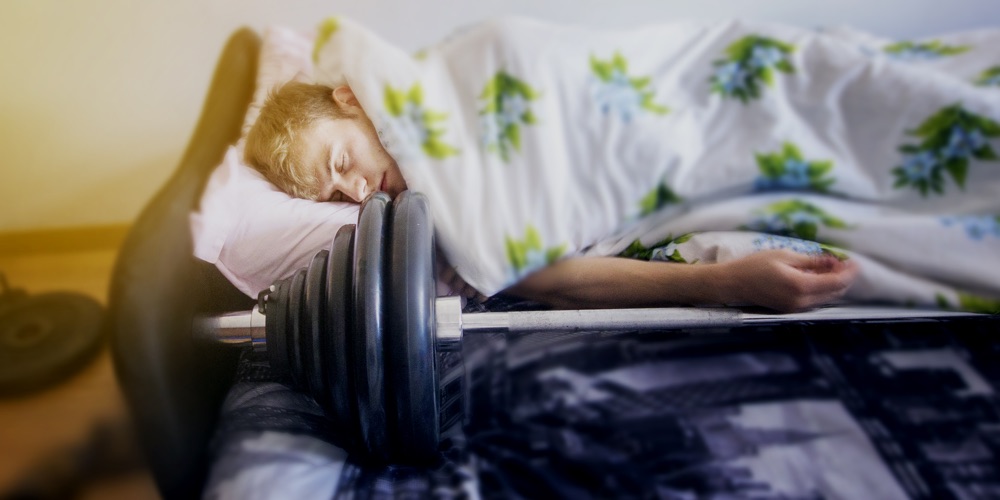
Understanding Natural Sleep Aids
What Are Natural Sleep Aids?
Natural sleep aids are substances or practices that help promote sleep without the use of synthetic drugs. These can include herbal teas, essential oils, and dietary supplements known to have calming effects.
Benefits of Natural Sleep Aids
Using natural sleep aids can help you avoid the side effects associated with prescription medications. They can be a safer, more holistic approach to improving sleep quality.
Natural Sleep Remedies
Herbal Teas
Herbal teas such as chamomile, valerian root, and lavender are popular natural remedies for better sleep. Their soothing properties can help you relax and fall asleep faster.
Chamomile Tea
Chamomile tea is well-known for its calming effects, making it a perfect pre-bedtime drink. Its natural compounds act as a mild tranquilizer and sleep inducer.
Valerian Root Tea
Valerian root tea can improve sleep quality and reduce the time it takes to fall asleep. It is often used as a remedy for insomnia and anxiety.
Lavender Tea
Lavender tea can help improve sleep quality and alleviate symptoms of restlessness. Its aromatic properties also help create a relaxing bedtime environment.
Essential Oils
Essential oils like lavender, cedarwood, and ylang-ylang can promote relaxation and improve sleep. You can use them in a diffuser, apply them topically, or add a few drops to your bath.
Lavender Oil
Lavender oil is perhaps the most popular essential oil for sleep. It has decreased heart rate and blood pressure, promoting relaxation.
Cedarwood Oil
Cedarwood oil has sedative properties that can help you unwind and prepare for sleep. It is particularly effective when used in a diffuser or applied to the skin.
Ylang-Ylang Oil
Ylang-ylang oil can help reduce anxiety and promote a sense of calm, making it easier to fall asleep and stay asleep.
Supplements
Supplements like melatonin, magnesium, and valerian root can aid in regulating sleep patterns and improving sleep quality. Always consult with a healthcare provider before starting any supplement regimen.
Melatonin
Melatonin is a hormone that regulates sleep-wake cycles. Supplementing with melatonin can be especially helpful for those with irregular sleep patterns or jet lag.
Magnesium
Magnesium plays a crucial role in sleep regulation. It can help calm the nervous system and promote deep, restorative sleep.
Valerian Root
Valerian root supplements can improve sleep quality and reduce the time it takes to fall asleep. It is often used as a natural remedy for insomnia.
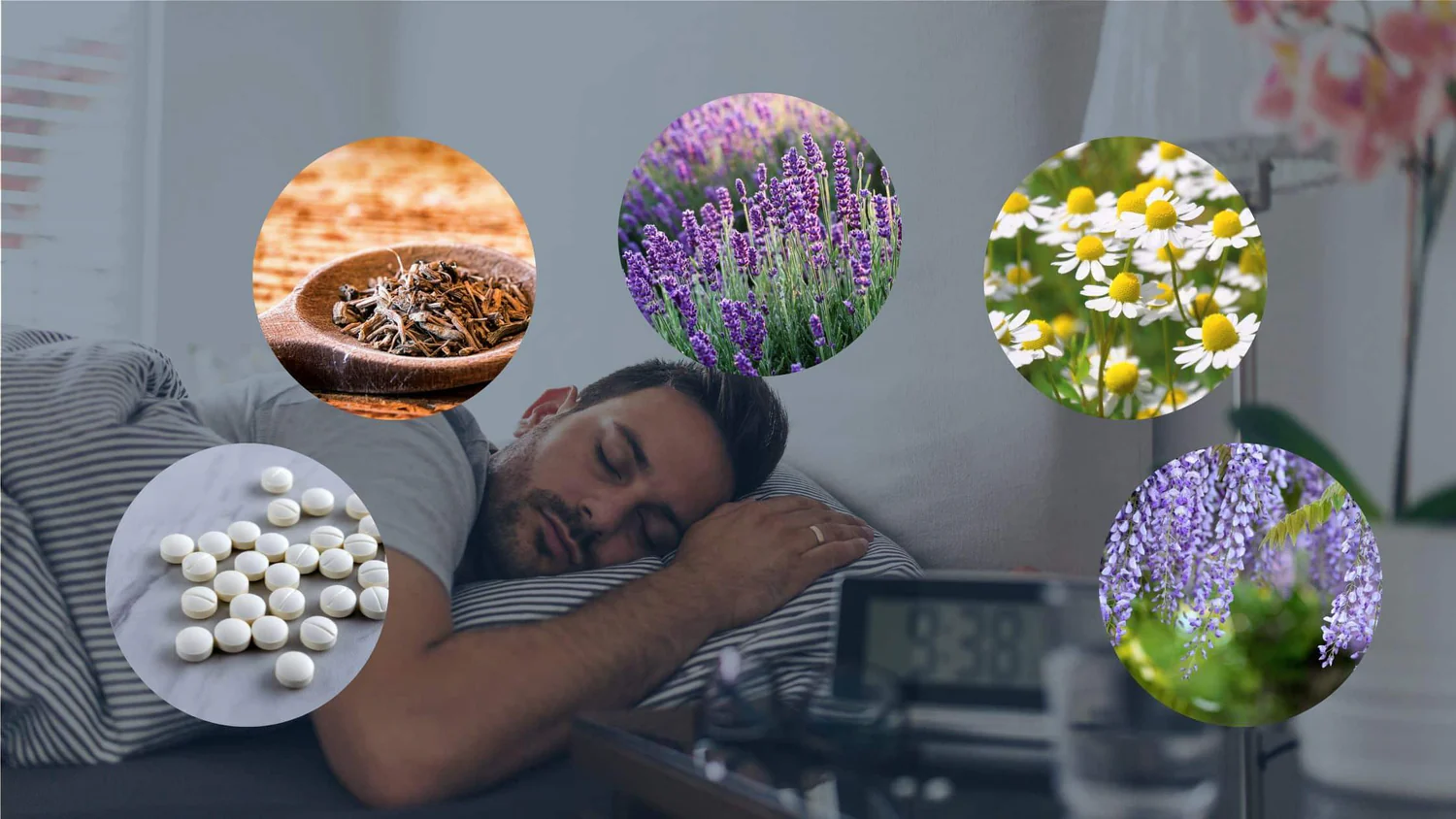
Tips to Improve Sleep Quality
Establish a Sleep Routine
Going to bed and waking up simultaneously every day can help regulate your sleep cycle. Consistency is key to training your body to sleep better.
Benefits of a Regular Sleep Schedule
A regular sleep schedule can help synchronize your internal clock, making it easier to fall asleep and wake up at the desired times.
How to Stick to a Sleep Schedule
Create a bedtime routine with relaxing activities such as reading or a warm bath. Avoid stimulating activities and electronics before bed.
Create a Sleep-Conducive Environment
Make your bedroom a sanctuary for sleep. Keep it cool, dark, and quiet. Invest in a comfortable mattress and pillows, and remove any distractions.
Ideal Bedroom Conditions
A cool room temperature (around 60-67°F), blackout curtains, and a noise-free environment can significantly improve sleep quality.
Choosing the Right Bedding
Investing in a quality mattress and pillows can make a big difference. Choose bedding that provides adequate support and comfort.
Limit Exposure to Blue Light
Blue light from screens can disrupt your sleep cycle. Try to avoid screens for at least an hour before bed. If you must use your devices, consider using blue light filters.
Effects of Blue Light on Sleep
Blue light suppresses melatonin production, making it harder to fall asleep. Reducing screen time before bed can help improve sleep quality.
Tools to Reduce Blue Light Exposure
Use blue light-blocking glasses, apps, and screen filters to minimize exposure during evening hours.
Practice Relaxation Techniques
Techniques such as deep breathing, progressive muscle relaxation, and guided imagery can help calm your mind and prepare your body for sleep.
Deep Breathing Exercises
Deep breathing can activate the body’s relaxation response, making it easier to drift off to sleep.
Progressive Muscle Relaxation
Progressive muscle relaxation involves tensing and then relaxing each muscle group. This technique can reduce physical tension and promote relaxation.
Guided Imagery
Guided imagery involves visualizing calming and peaceful scenes. This technique can help distract your mind from stress and anxiety.
The Role of Sleep Hygiene
What is Sleep Hygiene?
Sleep hygiene refers to habits and practices that promote regular sleep. Good sleep hygiene can significantly improve the quality of sleep.
Importance of Sleep Hygiene
Practicing good sleep hygiene can help you develop a healthy sleep routine, making it easier to fall and stay asleep.
Sleep Hygiene Practices
Good sleep hygiene includes practices such as maintaining a consistent sleep schedule, creating a restful environment, and limiting caffeine and alcohol intake.
Limiting Caffeine and Alcohol
Caffeine and alcohol can interfere with sleep. Avoid consuming them in the hours leading up to bedtime.
Creating a Bedtime Routine
A relaxing bedtime routine can signal your body that it’s time to wind down. Include activities that promote relaxation, such as reading or listening to soothing music.
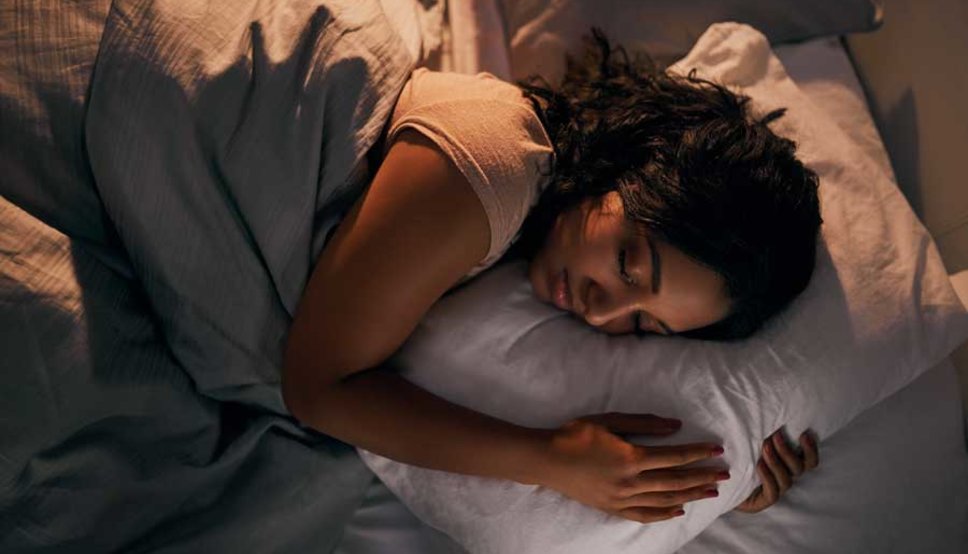
Natural Ways to Promote Better Sleep
Regular Exercise
Engaging in regular physical activity can help you fall asleep faster and enjoy deeper sleep. Aim for at least 30 minutes of moderate exercise most days of the week.
Best Times to Exercise
While regular exercise can improve sleep, it’s important to time your workouts appropriately. Avoid vigorous exercise close to bedtime.
Balanced Diet
Eating a balanced diet rich in whole foods can support better sleep. Avoid heavy meals, caffeine, and alcohol close to bedtime.
Foods that Promote Sleep
Certain foods, such as turkey, nuts, and cherries, rich in tryptophan, magnesium, and melatonin, can help promote sleep.
Foods to Avoid Before Bed
Avoiding heavy, spicy, or acidic foods before bed can prevent discomfort and promote better sleep.
Mindfulness and Meditation
Mindfulness and meditation can reduce stress and anxiety, making falling asleep and staying asleep easier. Consider incorporating these practices into your nightly routine.
Benefits of Mindfulness and Meditation
These practices can help quiet the mind, reduce stress, and improve overall sleep quality.
How to Incorporate Mindfulness into Your Routine
Set aside a few minutes each evening for mindfulness or meditation. Apps and guided sessions can be helpful for beginners.
Understanding Sleep Disorders
Common Sleep Disorders
Sleep disorders such as insomnia, sleep apnea, and restless legs syndrome can interfere with your ability to get quality sleep. Recognizing the symptoms is the first step in addressing them.
Insomnia
Insomnia is characterized by difficulty falling asleep or staying asleep. It can be caused by stress, anxiety, or poor sleep habits.
Sleep Apnea
Sleep apnea is a condition where breathing repeatedly stops and starts during sleep. It requires medical attention and treatment.
Restless Legs Syndrome
Restless legs syndrome is a condition characterized by an uncontrollable urge to move the legs, often disrupting sleep.
How to Address Sleep Disorders
If you suspect you have a sleep disorder, it’s important to seek medical advice. Treatments can range from lifestyle changes and natural remedies to medical interventions.
Seeking Medical Help
Consult a healthcare provider if you experience persistent sleep problems. They can recommend appropriate treatments and interventions.
Lifestyle Changes and Remedies
In addition to medical treatments, lifestyle changes and natural remedies can help manage sleep disorders.
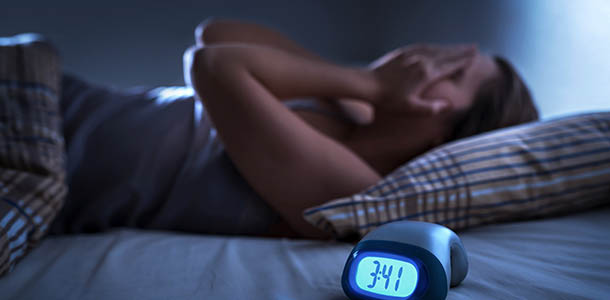
Conclusion
With the right approach, you can achieve better sleep at night naturally. By incorporating these tips and natural remedies into your daily routine, you can improve your sleep quality and overall well-being. Remember, consistency is key, and small changes can make a big difference. Sweet dreams!
For athletes, sleep is not just a passive activity but an active part of their training regimen. Better sleep leads to enhanced physical recovery, improved cognitive functions, and optimal hormonal balance, all of which are essential for peak athletic performance. By establishing a consistent sleep routine, optimizing the sleep environment, maintaining proper nutrition and hydration, and managing stress, athletes can significantly improve their sleep quality and, consequently, their performance.
FAQs – How to sleep better at night naturally
Q: What are the best natural remedies for better sleep?
A1: Some of the best natural remedies include herbal teas like chamomile, essential oils like lavender, and supplements like melatonin.
Q: How can I create a sleep-conducive environment?
A: Keep your bedroom cool, dark, and quiet. Invest in a comfortable mattress and pillows, and eliminate any distractions.
Q: What is sleep hygiene, and why is it important?
A: Sleep hygiene involves habits and practices that promote good sleep. It’s important because it can significantly improve your sleep quality.
Q: How does regular exercise impact sleep?
A: Regular exercise can help you fall asleep faster and enjoy deeper sleep. Aim for at least 30 minutes of moderate exercise most days of the week.
Q: What should I do if I suspect I have a sleep disorder?
A: If you suspect you have a sleep disorder, seek medical advice. Treatments can include lifestyle changes, natural remedies, and medical interventions.


